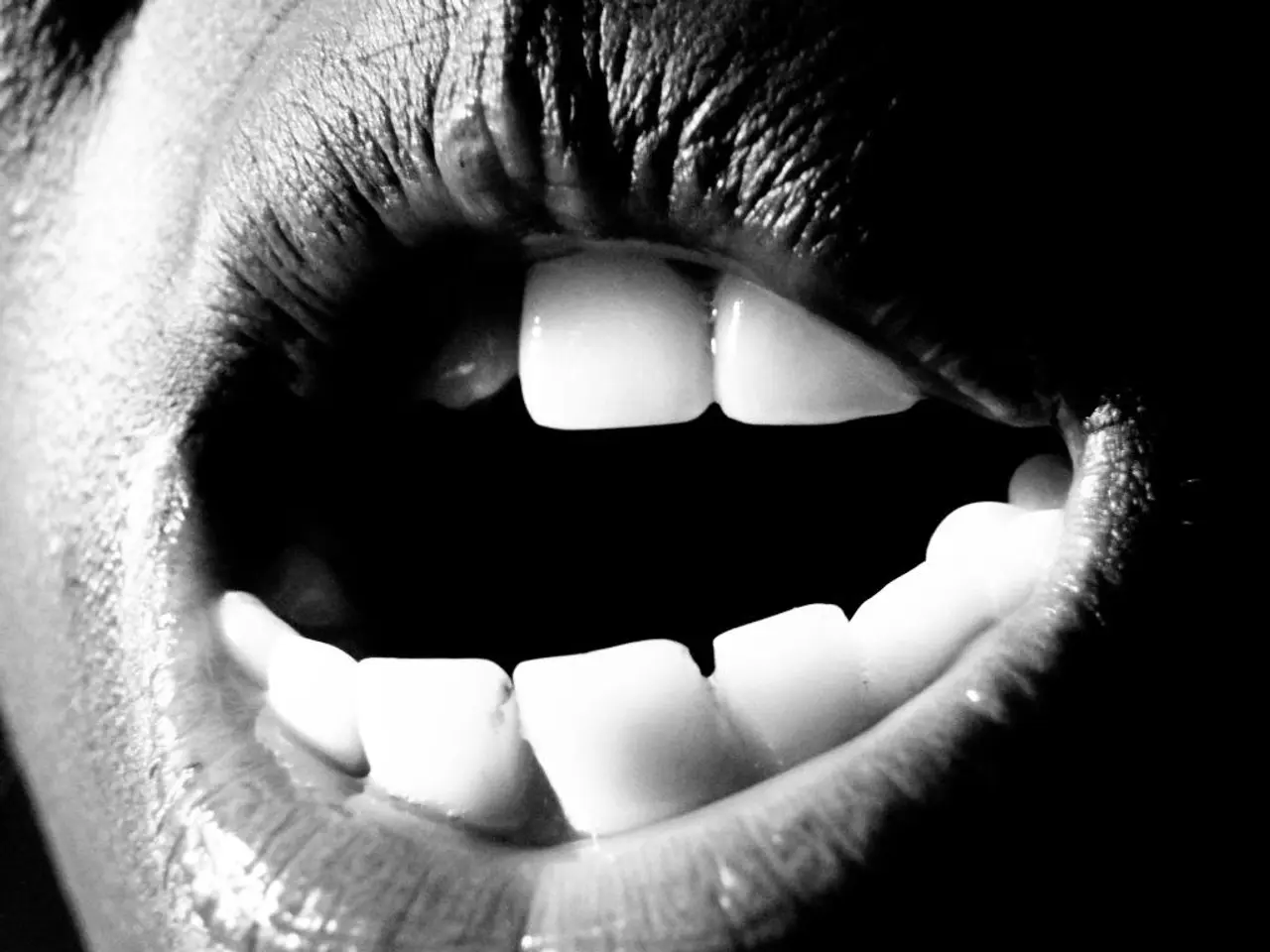9 strategies for alleviating toothache during the night hours
In the unfortunate event of a toothache, home remedies can provide temporary relief while you wait for professional dental care. Here's a rundown of some effective home remedies and when to consult a dentist.
Firstly, over-the-counter painkillers such as nonsteroidal anti-inflammatory drugs (NSAIDs) like ibuprofen and naproxen can help manage dental pain. These medications are particularly effective for toothache due to their dual action of reducing inflammation and pain [1].
Another home remedy is rinsing your mouth with salt water or hydrogen peroxide. This can help reduce plaque, gingivitis, and oral bacteria, as well as remove food particles and protect damaged teeth from infection [2]. Swishing peppermint tea or sucking on peppermint tea bags may also temporarily help relieve pain from a toothache [3].
For those who prefer more natural remedies, clove oil, containing eugenol, may help relieve toothache pain, especially from irreversible pulpitis. Chewing a clove of garlic may also help, although the taste can be too strong for some people [4]. Medicated ointments containing ingredients such as benzocaine may temporarily numb the area and help reduce toothache pain [5].
Elevating the head with an extra pillow or two may relieve toothache pain enough for a person to fall asleep. A cold compress can help reduce swelling and pain associated with a toothache [6]. Gargling with warm salt water before bed can help relieve toothache pain [7].
However, it's important to note that home remedies are only for temporary relief. If tooth pain persists for more than 1 or 2 days without symptoms of a sinus infection, it's advisable to consult a dentist for a full diagnosis and treatment [8]. Ignoring the signs of tooth decay may lead to more serious issues, including abscesses, gum disease, and tooth loss [9].
For persistent toothache at night, it's crucial to seek professional help. Dentists can treat the underlying cause and suggest tips to ease symptoms. Potential causes of toothache include losing a filling, dental abscess, trauma to the jaw, wisdom tooth or adult tooth coming in, food stuck in the teeth or gums, grinding the teeth at night, and gum disease [10].
In summary, for home remedies to manage dental pain at night, NSAIDs (alone or combined with acetaminophen) are generally more effective and safer than opioids. Opioids should be reserved for cases where NSAIDs are insufficient and used under medical supervision [11]. This multimodal analgesic approach optimizes pain relief while minimizing adverse effects and opioid dependency risk [12].
Remember, while these home remedies can offer relief, it's essential to consult a dentist for a comprehensive diagnosis and treatment plan. Proactive dental care is key to maintaining a healthy smile.
References: [1] https://www.ncbi.nlm.nih.gov/pmc/articles/PMC6984551/ [2] https://www.ncbi.nlm.nih.gov/pmc/articles/PMC6409045/ [3] https://www.ncbi.nlm.nih.gov/pmc/articles/PMC6329484/ [4] https://www.ncbi.nlm.nih.gov/pmc/articles/PMC6311526/ [5] https://www.ncbi.nlm.nih.gov/pmc/articles/PMC6409045/ [6] https://www.ncbi.nlm.nih.gov/pmc/articles/PMC6409045/ [7] https://www.ncbi.nlm.nih.gov/pmc/articles/PMC6329484/ [8] https://www.ncbi.nlm.nih.gov/pmc/articles/PMC6329484/ [9] https://www.ncbi.nlm.nih.gov/pmc/articles/PMC6329484/ [10] https://www.ncbi.nlm.nih.gov/pmc/articles/PMC6329484/ [11] https://www.ncbi.nlm.nih.gov/pmc/articles/PMC6984551/ [12] https://www.ncbi.nlm.nih.gov/pmc/articles/PMC6409045/
- For people living with bipolar disorder, managing depression and oral health can be crucial as diabetes, COPD, and other health-and-wellness issues may be predictive of toothache.
- Household bleach may not be effective for toothache remedies, as it can cause harm to oral health and should not be used.
- While home remedies can temporarily alleviate toothache pain, they are not a substitute for professional dental treatment, especially for persistent toothache and type of dental issues like abscesses or wisdom tooth problems.
- A dentist might recommend specific oral health-and-wellness practices, such as using tooth cleaner, to maintain good dental health and prevent future toothache.
- It's essential to consult with a dentist and follow their advice when dealing with a toothache, even when using over-the-counter NSAIDs like aq, a type of painkiller, to manage the pain.
- In cases where home remedies and common dental treatments prove ineffective, more specialized procedures and medications may be required, such as prescribing stronger painkillers when traditional options like NSAIDs and opioids are insufficient.
- Prioritizing proactive dental care is vital in maintaining good oral health, preventing toothache, and ensuring overall health-and-wellness.




